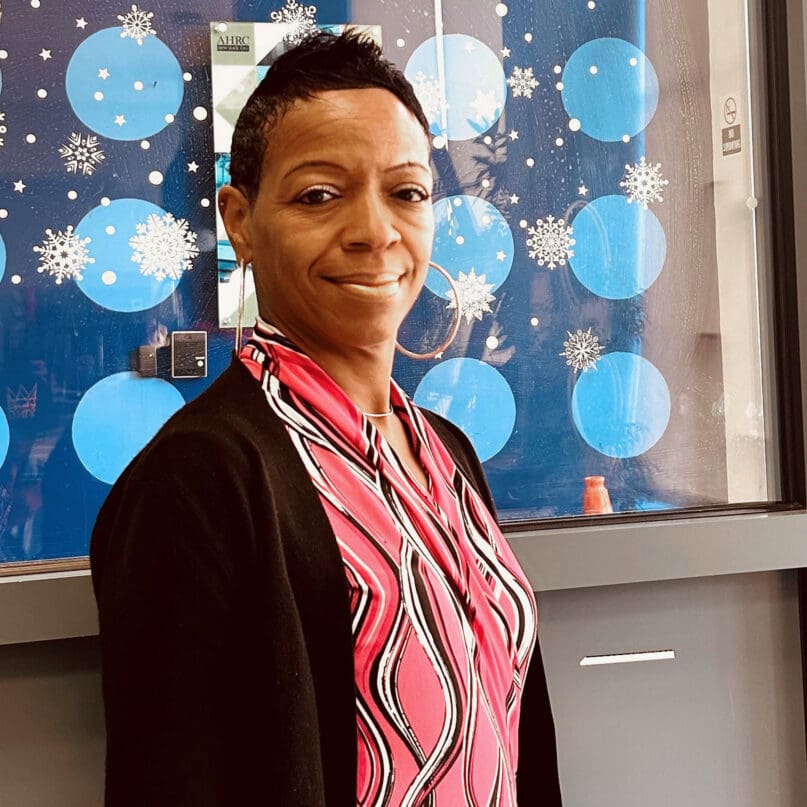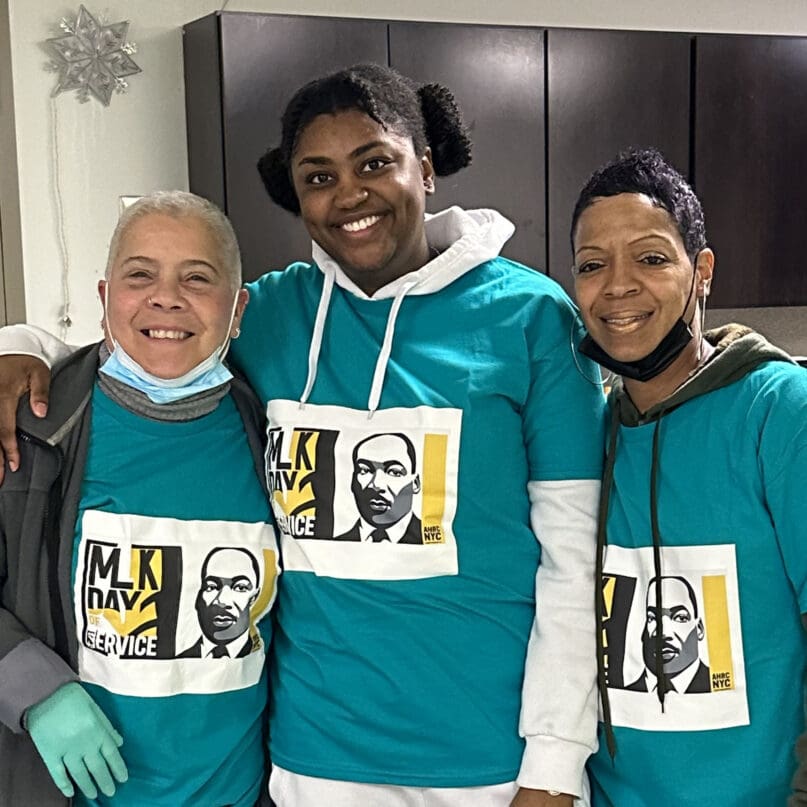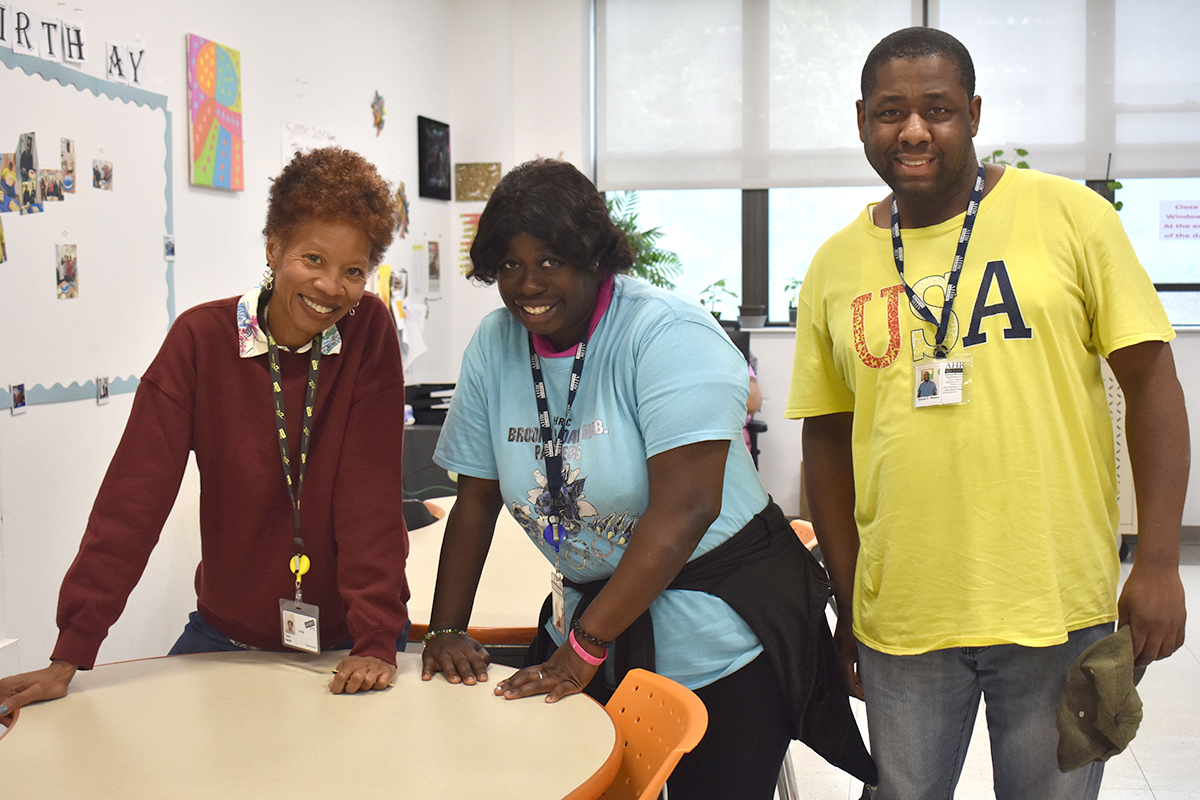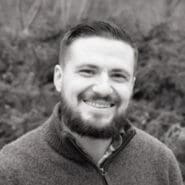Direct Support Professionals enter the field for many reasons—a desire to affect change, a caring mentality, and seeing the potential of people with intellectual and developmental disabilities, to name a few. But to stay in this profession for 15, 30, even 40 years takes a unique commitment and a belief that this work is your personal calling. During this year’s DSP Recognition Week, we are acknowledging the contributions of three long-term DSPs who continue to positively contribute to the lives of the people they support and their colleagues.
“Like A Family Away from Family”
“I enjoy this job–I don’t think I can go anywhere else,” said Quelmi Johnson, a DSP at the Rossi residence in Staten Island. He has been with AHRC in various capacities since 1985.
Quelmi said that it took him some time to grow into the role. “After my first six months at AHRC, I got an evaluation that was very bad, to be honest. I said to myself, ‘I could do something better,’ and I got it together. My next evaluation was excellent.”
He has formed close bonds with the residents he supports. “The residents become like a family away from family,” Quelmi added. “You understand what I’m saying? It’s like family because if they get hurt, if they get sick, you know, I feel, you know, you get a feeling in your heart, and that’s what the motivation is. I can see myself being in [that position] as well.”
35 Years of Progress
Wanda Brown has been a Community Support Professional at AHRC NYC for 35 years, many of them with Wendy B. Seigel Day Services in Bushwick. She was inspired to enter this profession by her two brothers with Down syndrome and the way her parents raised them all together.
“Believe it or not, I really didn’t think anything was wrong with my brothers,” Wanda said. “My parents treated them the same as anyone else. It was amazing to see that they had services for people like my brothers when I came to AHRC.”


Wanda enjoys teaching people with disabilities what she describes as “basic everyday living skills. We do simple things like showing them how to brush their teeth. It’s structured. It’s wonderful to teach them those skills.”
In more than three decades of work, Wanda has observed much progress as health outcomes and services have improved for people with disabilities.
“Many of them are so much more independent. I love that they can go out in the community and be more involved now.”
“Always Up for a Challenge”
While Wanda had familial experience, Taryn Harris came to this field nearly 15 years ago after a corporate career and a desire for something more professionally meaningful. Racquel Pinnock, Regional Director, said, “Taryn has worked as a job coach, travel trainer, and dance instructor—she’s always up for a challenge.”
“I’m very proud of the people I’ve worked with,” Taryn said. “They are committed, talented, and really bright. There are people here who have taught me things I didn’t know myself.”
Taryn passionately believes in community integration and exposing people with disabilities to new activities and environments.
“I love all the volunteer sights we go to. It helps their communities and makes them feel good about themselves. They can say ‘I receive support but I’m helping someone else who wouldn’t have this without my help.’”
Retention Issues
Taryn, Wanda, and Quelmi have become valuable long-term employees to their colleagues, supervisors, and especially the people and families they support. But due to decades of underfunding I/DD services, exacerbated by upcoming Medicaid cuts from the federal government, DSPs now make starting salaries that are often only slightly above minimum wage, despite the demands and responsibilities required of these roles. As a result, many service providers have struggled to recruit and retain direct care workers at the levels that are needed for optimal quality of life for people with disabilities.
“When there’s enough staff, the residents benefit from it,” Quelmi said. “Sometimes, we will be short-staffed or the staff that are here do not have enough experience to take the residents out for community activities. And that’s not right. You can’t work in this field if you’re heart is not fully in it.”

